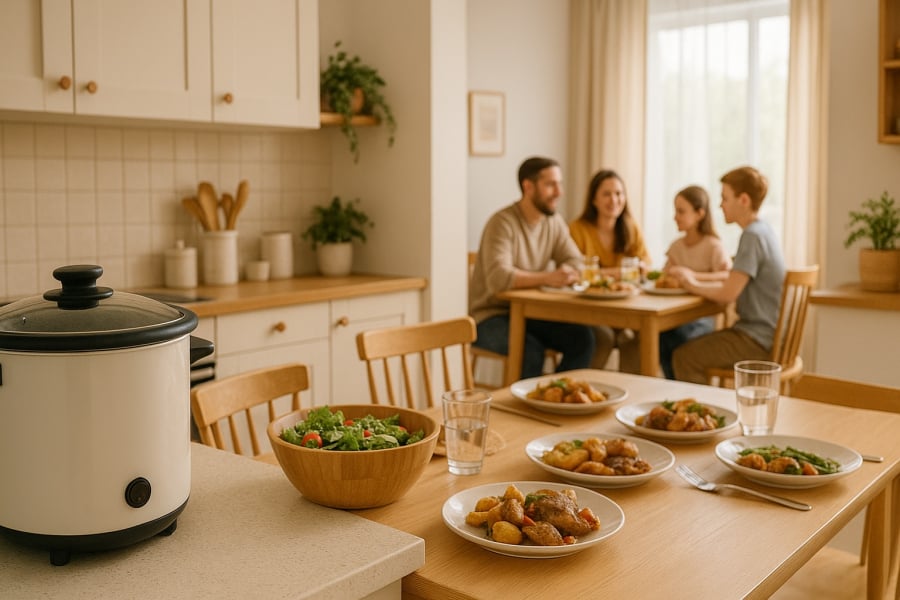Bright and Airy Space
Light and airflow are considered essential elements in residential feng shui. A home that welcomes the morning sun and a gentle breeze, without feeling stuffy, is an ideal environment for the flow of positive energy and the accumulation of wealth.
Dark, damp homes with cluttered pathways can induce a sense of heaviness and fatigue. In feng shui, this is also indicative of stagnant energy, negatively impacting the health and well-being of the occupants.
Tip: If you don’t have large windows, you can use mirrors to reflect light, opt for sheer, light-colored curtains, or place a potted plant in a corner to “activate” positive energy.

A Home Filled with Laughter and Joy
A happy home is filled with laughter and joyful voices. According to feng shui, this type of “emotional energy” can transform the energy field within the living space. The more love, care, and sharing among family members, the smoother the energy flow, which benefits family relationships.
On the other hand, homes ridden with frequent conflicts, cold shoulders, and minimal conversation accumulate negative energy, eventually affecting the overall fortune of each occupant.
You can start with simple acts: sharing a dinner together, checking in with each other at the end of the day, or watching a funny movie together—these are gentle yet effective ways to “stimulate” positive energy.
A Warm and Well-Used Kitchen
In Asian culture, the kitchen is where the “fire” is kept, both literally and metaphorically. A kitchen with someone tending to it signifies not only physical nourishment but also represents the heart of the family. Feng shui considers this area crucial for maintaining wealth, so a cold, dirty, and neglected kitchen will impact both health and overall fortune.
Feng shui expert Nguyen Hoai Linh shares: “A home with a cold kitchen often indicates a rift in family bonds or a lack of financial stability. Simply lighting the stove every day, even for a simple meal, is enough to regenerate positive energy within the home.”
You can decorate the kitchen with a vase of fresh flowers, keep the countertops clean, and never let trash pile up in this area.

Decorating with Auspicious Items
You don’t need expensive talismans to bring good feng shui. Simply choose symbols with positive meanings to “activate” positive energy in your home. For example:
- Houseplants: Money plants, peace lilies, and jade plants—these purify the air and symbolize good luck and prosperity.
- Artwork: Lotus flowers (purity), sailing ships (smooth journey), and koi fish (overcoming adversity).
- Small statues: Laughing Buddha, a pair of cranes, or elephants—these bring a sense of peace and abundance.
Note: Avoid displaying too many feng shui items, as this can create a sense of clutter and block energy flow. Opt for simplicity and intentional placement.
Harmonious Relationships among Family Members
The final and most crucial sign of a prosperous home is the harmony among its occupants. A home is more than just a dwelling; it is a sanctuary for nurturing emotions, healing wounds, and building lasting connections.
Families that cultivate love, listen to one another, and respect personal boundaries naturally attract positive energy, stable finances, and good fortune.
In Conclusion
Feng shui is not just about the physical arrangement of objects but also about the emotions and energy we nurture within our homes. Sometimes, a tidy corner, a shared meal, or a kind word can transform the energy within our spaces. If you seek peace and prosperity, start with your own haven—with the little things that have immense power.
Information provided is for reference only.

































